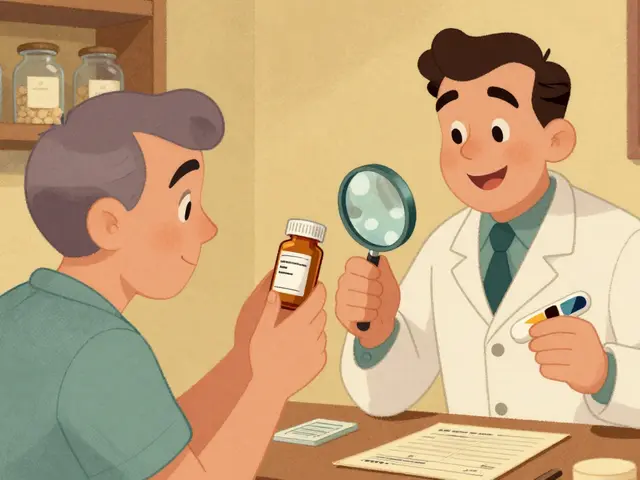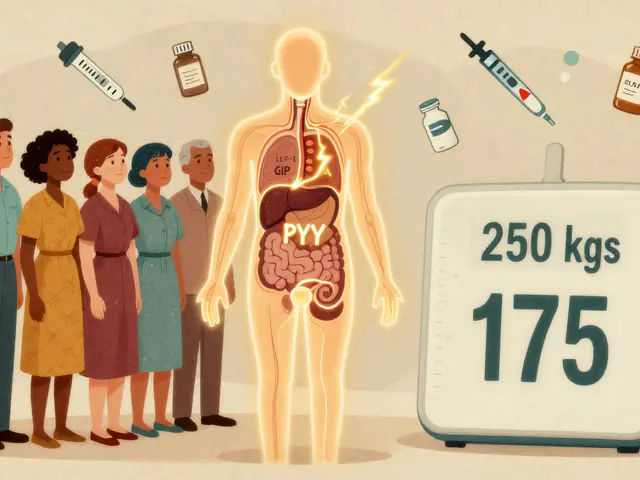Post-meal discomfort: what’s causing that bloated, heavy feeling?
Ever finish a meal and feel too full, gassy, or like your chest is on fire? Post-meal discomfort is common, and it can come from simple habits or an underlying issue. This page gives clear, practical steps to feel better fast, ideas to avoid repeat episodes, and signs that mean you should see a doctor.
Quick fixes that actually help
Move gently. A 10–15 minute walk after eating helps digestion and reduces bloating. Sit upright for at least an hour—lying down makes heartburn worse. Loosen tight clothes; pressure around your waist can push stomach contents up.
Watch portions. Large meals overload digestion. Try smaller plates or split big meals into two halves. Eat slowly and chew well—you’ll swallow less air and give enzymes a chance to start breaking food down.
Skip obvious triggers when you notice a pattern: fried and fatty foods, very spicy dishes, carbonated drinks, and lots of sugar or artificial sweeteners (sorbitol, xylitol). If dairy bothers you, try lactose-free options or take a lactase pill when needed.
For gas and bloating, try a low-FODMAP test for a couple of weeks (cutting fermentable carbs like onions, garlic, beans, apples). Over-the-counter simethicone can relieve trapped gas; digestive enzymes may help with heavy, fatty meals.
OTC options and when to use them
Antacids (Tums, Maalox) can neutralize acid fast. H2 blockers (famotidine) and proton pump inhibitors (omeprazole) work for frequent heartburn—but use PPIs short-term unless a doctor advises longer treatment. Prokinetic drugs (used to help stomach emptying) are another option—see the article on Motilium alternatives for pros and cons and safer choices.
One quick rule: if an OTC helps you regularly, bring it up with a clinician. Reaching for pills every day is a sign you should get checked rather than treating symptoms on repeat.
Also consider food–drug interactions. Some fruits (like grapefruit and others) can change how medications work. If you take prescriptions and notice worse symptoms after certain juices or supplements, read our guide on citrus drug interactions to avoid surprises.
Small lifestyle fixes pay off: reduce alcohol and caffeine, eat more slowly, and balance meals with protein and low-glycemic carbs. Drink water, but avoid gulping large amounts during the meal—sip instead.
If your symptoms are occasional and mild, these changes often fix things quickly. But some signs demand prompt medical attention:
- Unintentional weight loss
- Difficulty swallowing or food getting stuck
- Vomiting blood or black stools
- Severe, persistent abdominal pain
Those symptoms deserve urgent evaluation. For ongoing but not urgent issues, book a visit with your primary care doctor or a gastroenterologist—bring a brief food and symptom diary so they can spot patterns faster.
Want more detail? Read our post on Motilium alternatives if you’re exploring prokinetics, and check the citrus drug interactions guide if you take medications that might mix poorly with certain fruits. Small changes often make a big difference—start with one habit at a time and track what helps.

Understanding the link between food intolerances and bloating after a meal
In my exploration of food intolerances and bloating, I've come to understand that these two are closely connected. When we consume foods that our bodies can't properly digest, it often results in bloating after a meal. This happens because the undigested food ferments in the gut, causing gas and discomfort. Identifying and managing food intolerances is therefore a key step in reducing bloating. In essence, what we eat directly affects how we feel post-meal, emphasizing the importance of a mindful diet.
Read More




